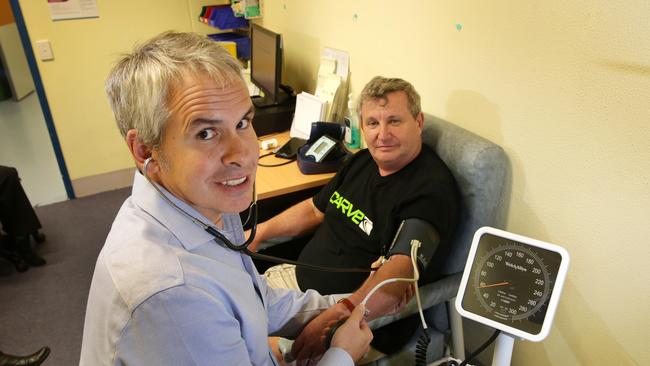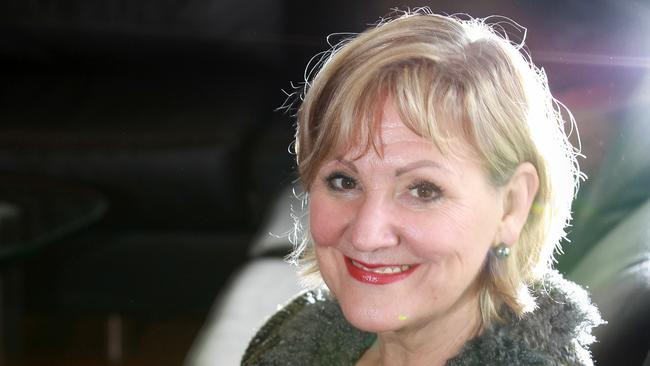‘Blockbuster’ Alzheimer’s drug Xanamem to be tested on Australian patients
A NEW drug to beat Australia’s second biggest killer, Alzheimer’s disease, will be trialled on Australian patients ‘within months’.

Illness
Don't miss out on the headlines from Illness. Followed categories will be added to My News.
EXCLUSIVE
A NEW drug to beat Australia’s second biggest killer Alzheimer’s disease will be trialled on Australian patients within months.
The medicine Xanamem blocks the stress hormone cortisol to improve mental function and is being billed as the world’s next blockbuster drug after it improved the mental function of mice.
Australian company Actinogen Medical will begin trials of its new Alzheimer’s disease drug Xanamem on the Central Coast of NSW, as well as Sydney and Melbourne.
More than 170 patients with mild dementia in Australia, the United Kingdom and the United States will take part in the placebo controlled 12-week trial.
University of Newcastle’s Professor Jonathan Sturm whose patients will take part in the trial said there is great need for an effective Alzheimer’s treatment but while this new pill is promising “it’s still an early stage study”.
“It’s very important to get new treatments, the current treatments boost neurotransmitters so they treat the symptoms but they don’t treat the underlying disease,” he said.

A CSIRO study of 1000 elderly Australians that began in 2006 found a link between elevated cortisol in the blood and the subsequent development of Alzheimer’s disease.
In 2015 an Edinburgh University study in mice showed reducing cortisol in the brain improved their memory and decreased the number of amyloid plaques in the brain that are associated with Alzheimer’s disease.
A 2016 study at the same university showed Xanamem was safe in humans, decreased the production of cortisol in healthy humans and successfully crossed the blood-brain barrier.
The next phase of testing will determine whether it improves the mental function of people with mild dementia.
Actinogen Medical managing Director Dr Bill Ketelby says the medication may also be useful in treating post traumatic stress disorder, anxiety and other mental problems.
Researchers also want to study whether it might help patients recover from heart attacks.

Over 413,000 Australians are currently living with dementia and nearly a million will have the disease by 2050.
The disease that damages the brain resulting in impaired memory, thinking and behaviour killed 12,625 Australians in 2015 and is forecast to overtake heart disease as out biggest killer by 2021.
Currently there are no treatments that control the disease long term.
Alzheimer’s Australia chief executive Maree McCabe has welcomed the trial and says it will provide new hope for Alzheimer’s patients and their families.
“The good thing about it is the fact it’s looking at something different,” she said.
Finding a way to diagnose Alzheimer’s disease early is just as important as finding a cure, she said.
“What the Australian Imaging, Biomarker & Lifestyle Study of Ageing found is that the path in the brain starts 20 years before the clinical symptoms manifest and by the time it’s diagnosed it’s too late for any treatment to be effective,” she said.
“The earlier you diagnose it the better,” she said.

Researchers at the University of California recently devised a genetic ‘score’ they claim can predict a person’s likelihood of developing Alzheimer’s and several research teams are working on blood tests to diagnose the disease decades earlier.
Queensland Brain Institute researcher Professor Jurgen Götz’s has shown that non-invasive ultrasound technology can reverse Alzheimer’s disease in mice.
Another QBI researcher Professor Perry Partlett has found exercise can stimulate the growth of new neurons in the brain.

Alan Gravolin’s wife Lyn developed Alzheimer’s disease in her mid 50s and is now in care.
“Until three years ago she had adequate cognition and she could listen, talk, draw, painted and did pottery and had an exhibition of 500 paintings,” Mr Gravolin from Sydney said.
More recently she lost her ability to communicate properly, she wandered the house at night, whistled constantly and sometimes wandered away from her home.
Alan, 76, visits his wife every day and takes her for a walk and a cup of coffee.
“You must welcome (the trial of the new medicine) it’s important to slow down the disease,” he says.
Rae Telfer’s husband Barry was diagnosed with Alzheimer’s disease in 2015 and while he can still drive his short term memory is affected and he has trouble prioritising activities.
Mrs Telfer says the diagnosis was “like a slap in the face with a wet fish”.
“When I was first dealing with it I could barely talk about it without bursting into tears, they call it the slow death, it’s a terminal illness,” she said.
Barry aged 74 worked in advertising and publishing and has started conventional Alzheimer’s treatment but has shown no improvement.
‘I’m hopeful they will find something, the earlier the better, you can see the deterioration happening and it’s hard to deal with the changes in a person you’ve lived with a long time,” she said.
“It’s amazing to see how fragmented his mind has become, it’s like moths eating a jumper,” says Mrs Telfer.
Mrs Telfer says she has been helped enormously by a number of courses run by Alzheimer’s Australia which bring carers and sufferers together.
Alzheimer’s patients received a blow late last year when trials of another promising drug solanezumab that aimed to clear rogue proteins from the brain were cancelled after it failed to slow cognitive decline.
More than 120 Alzheimer’s drugs have failed in clinical trials in the last two decades.
By 2025 its projected 255,800 carers will be needed in the community and 122,100 carers working in the cared accommodation sector to care for people with Alzheimer’s disease.
And the total cost of dementia is predicted to increase to $18.7 billion in today’s dollars, and by 2056 to over $36.8 billion.



